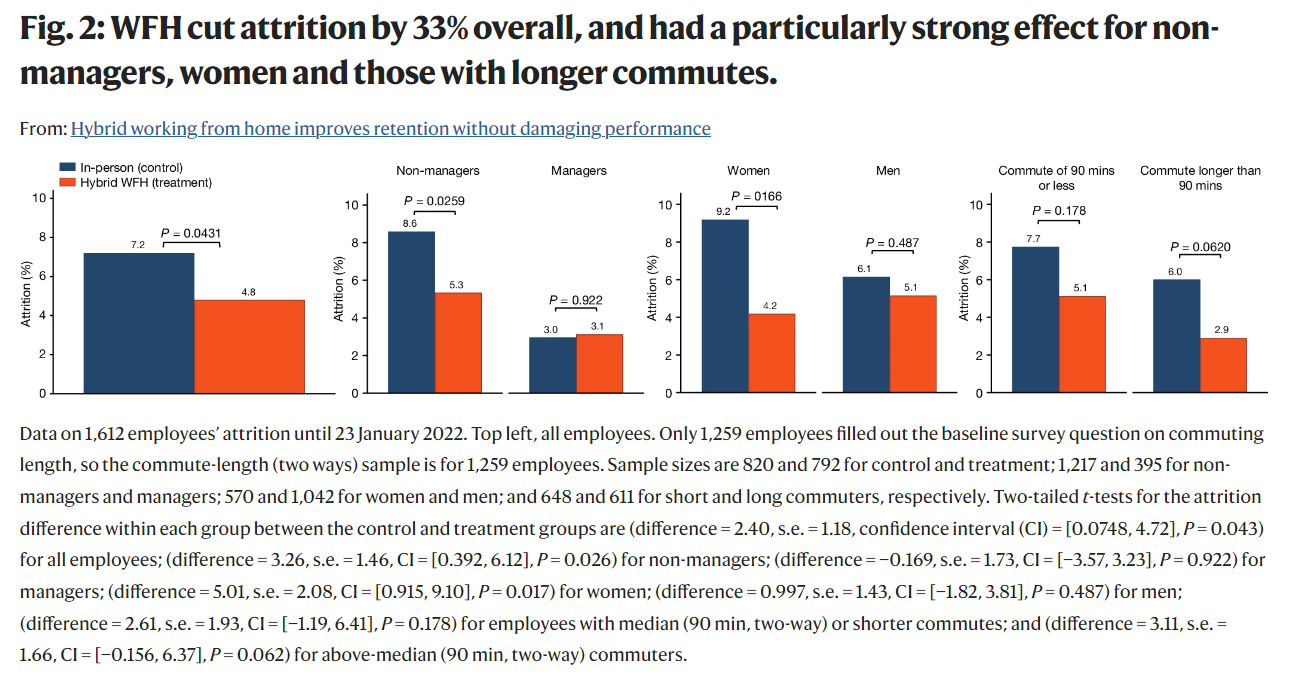Leaders,
Let’s cut it short. Here is what’s on these days.
1. Business & Trends
Work Burnout + Boredom = ‘Boreout’ | Daniel Goleman
Boreout is chronic boredom. Boreout can happen when you feel your work has absolutely no meaning. When there is no purpose, point, or the slightest satisfaction from what you’re doing.
Boreout is similar to burnout and workaholism. It can, too, lead to mental health issues (depression or anxiety).
Up to 40% of daily activities are the same and they repeat every day. When the routine does not have a meaning, you might need to look at how to help reignite a feeling of being part of something bigger.
How Paternity Leave Helps Dads’ Brains Adapt to Parenting | Molly Dickens and Kate Mangino
Paternal Brain Training: Research indicates that paternity leave benefits not only father-baby bonding and the baby's development but also causes significant changes in the paternal brain, similar to those observed in maternal brains, through adult neuroplasticity.
Engaged Experience: Quality one-on-one time between a father and his infant leads to functional neural changes, enhancing the father's ability to respond instinctively and effectively to the baby's needs.
Impact of Paternity Leave: Studies show that fathers who take paternity leave, especially in cultures with generous leave policies like Spain, exhibit significant brain changes in regions associated with sustained attention, preparing them for the cognitive and emotional demands of parenting.
Training Requires Perseverance: Like any training program, brain training for fatherhood involves dedication and perseverance through challenging moments. Engaging consistently with the baby is crucial for long-term success and the development of strong parenting instincts.
Advocacy for Paternity Leave: Encouraging men to take paternity leave and pushing for policies that support it can lead to a cultural shift. This shift would help more fathers to develop their parenting skills, contributing to greater gender equality by balancing caregiving roles.
2. Insights & Research
What do GenZ software engineers really think? | The Pragmatic Engineer
Who are Generation Z Software engineers?

Gen Z software engineers find that good managers are easy to get along with, can have difficult conversations, and are supportive, and relatable.
Bad managers are unsupportive and unhelpful in their careers, authoritarian, poor communicators, and people who don’t understand the actual work.
🔎Access the full insights and data:
AI in 2024 | McKinsey
AI is finding its way across subjects and companies. McKinsey has published a report showing the benefits of AI.
AI helps in marketing/sales and product/service development:
Hybrid working from home improves retention without damaging performance | Bloom, N., Han, R. & Liang, J
Research for Trip.com 2021-2022 with 1612 employees.
6-month experiment with WFH on Wednesday and Friday.

🔎 Read the full study: https://www.nature.com/articles/s41586-024-07500-2
3. Media
Books to read:
Radical respect: How to work together better by Kim Scott
The Biology of Leadership: Embrace Your Human Nature and Become a Better Leader by Carl Oxholm
Smaller is Better: Using Small Autonomous Teams to Drive the Future of Enterprise by Brady Brim-DeForest
Watch:
On the menu:
Thursday Newsletter: Productive disagreement
Upcoming training: July Feedback Boot Camp
2 sessions on feedback practice. Because you already know that feedback is a conversation. Now, get it done.
Dates: 16th & 23rd July
Duration: 85 Minutes/each session
Details: Dive into the key principles, SBI & Pendleton models, and master the art of handling emotional reactions easily, ensuring your feedback is heard and embraced.









